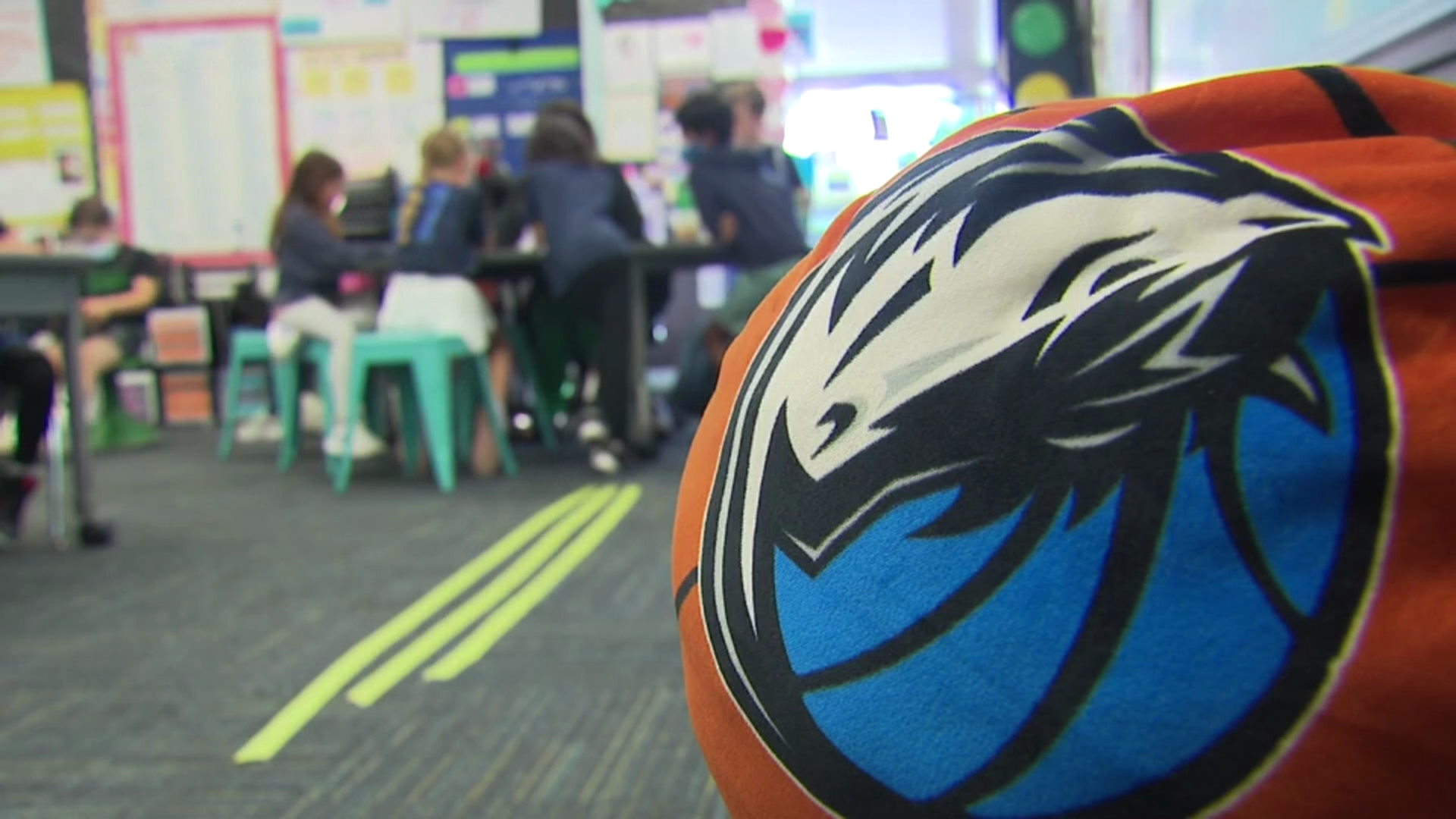The omicron variant is presenting more challenges for those helping some of the most vulnerable across North Texas.
Ability Connection is a Dallas-based nonprofit, specializing in care for people of all ages with intellectual and developmental disabilities.
They currently operate seven group homes throughout DFW, where adult clients can live and thrive. Residents receive supervision from dedicated staff according to their needs, from semi-independent to 24/7 care.
However, navigating the pandemic – now with the fast-spreading variant – has been difficult for these homes.
Get DFW local news, weather forecasts and entertainment stories to your inbox. Sign up for NBC DFW newsletters.
“I think it’s been a very challenging couple of years. If we go back to pre-vaccine, it was especially challenging because we were trying to be so careful and follow the protocol,” said Jim Hanophy, president and CEO of Ability Connection. “Invariably after the holidays, we had some illness in our homes."
Many of their residents are non-verbal and cannot articulate or self-diagnose covid symptoms that require medical care or quarantine.
“It’s a bit challenging because a lot of the folks that we support cannot articulate to you that they don’t feel well or that they have symptoms because they require full care. But our staff has just been wonderful. They’ve been trained on what to look for,” said Hanophy.
Local
The latest news from around North Texas.
Staff is trained to pick up on subtle differences in body language and behavior in residents to stay on top of COVID-19 infections.
“They have just been exceptional in keeping themselves safe and the residents safe,” said Hanophy. “Even someone who doesn’t use words to communicate, they communicate somehow. So our staff picks up on the subtle differences between them. If they don’t seem like themselves or something seems a little off, then they will do an assessment and contact the nurse. We are able to get people taken care of pretty quickly.”
They are urging families with children or relatives with intellectual and developmental disabilities to do the same right now.
“Check on folks, see if there’s any difference, pay attention. Don’t hesitate to get medical help because this variant may not be as serious but I think it comes on pretty quick. And it hits fast. So not waiting is a good idea,” said Hanophy.
The omicron variant has also forced Ability Connection to pivot back to virtual for many of their enrichment classes and other programs. Even their volunteer companion program, which matches volunteers with residents, has been affected.
“What’s interesting is we did it virtually for about a year. And then five or six months ago, some of our connection companions got to meet in person. Now we’re going back to virtual,” said Hanophy. “If that’s what it takes, that’s what it takes.”
Hanophy said with all the changes, sticking to a routine to keep residents happy and comfortable has also been a challenge.
“We really try to be as consistent as possible. I think that’s really important," he said. “But they’re a very flexible group of people, as long as they know what’s going on and we’re honest with the situation, they just roll with the punches."
In the meantime, the nonprofit is looking for more volunteers to connect with residents virtually and brighten their day during this time.
If you're interested in getting involved, click here.
Ability Connection has served people across Texas for 67 years. According to the organization, Texas ranks 48th in the United States in providing funding for people with disabilities, and there are currently more than 200,000 people on the waitlist to receive assistance through Medicaid waiver programs.
“It’s about a 10- to 12-year wait,” said Hanophy. “As an organization, we try to reach out to the community and at least be something for those folks who are on the waiting list.”



